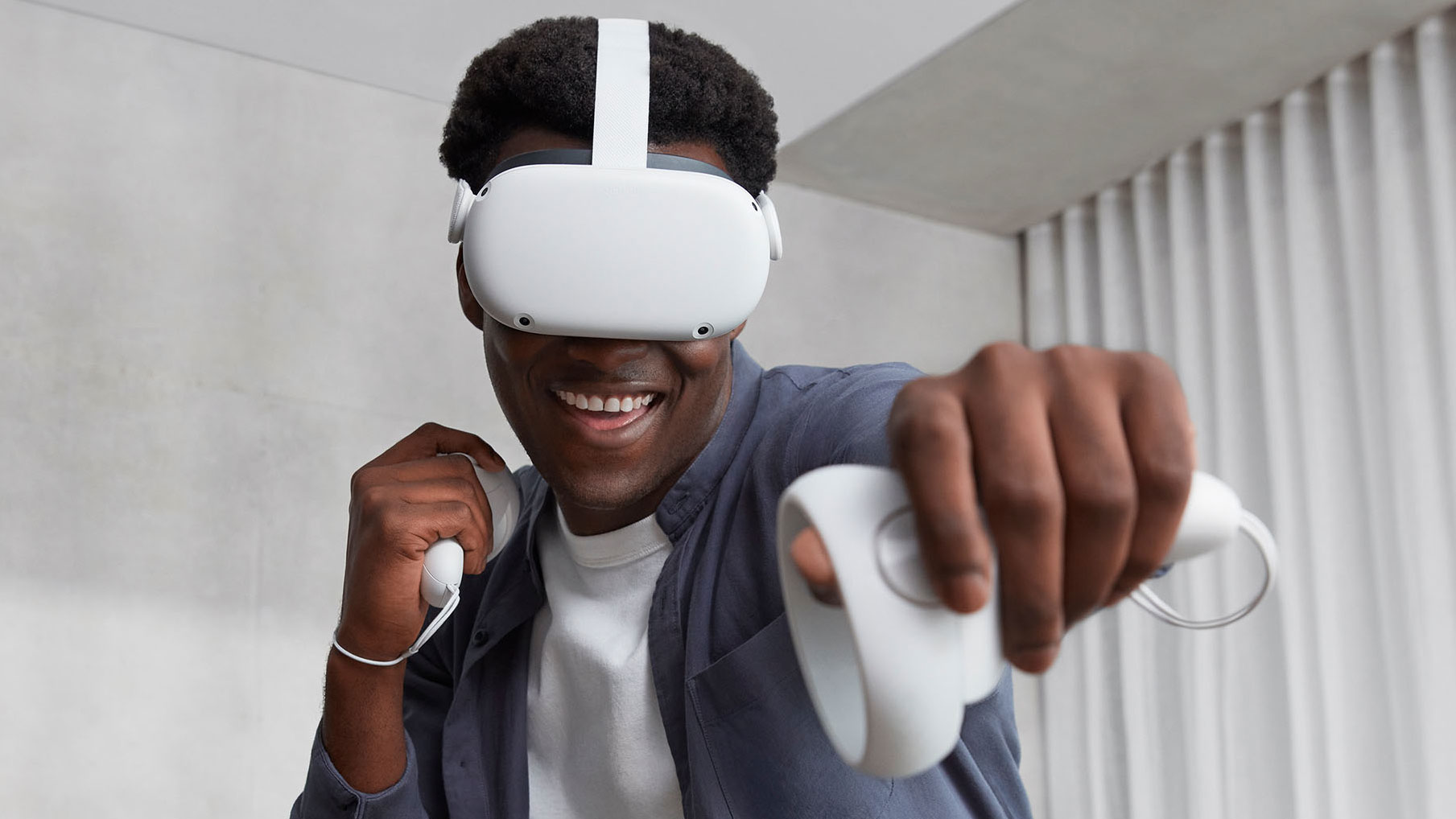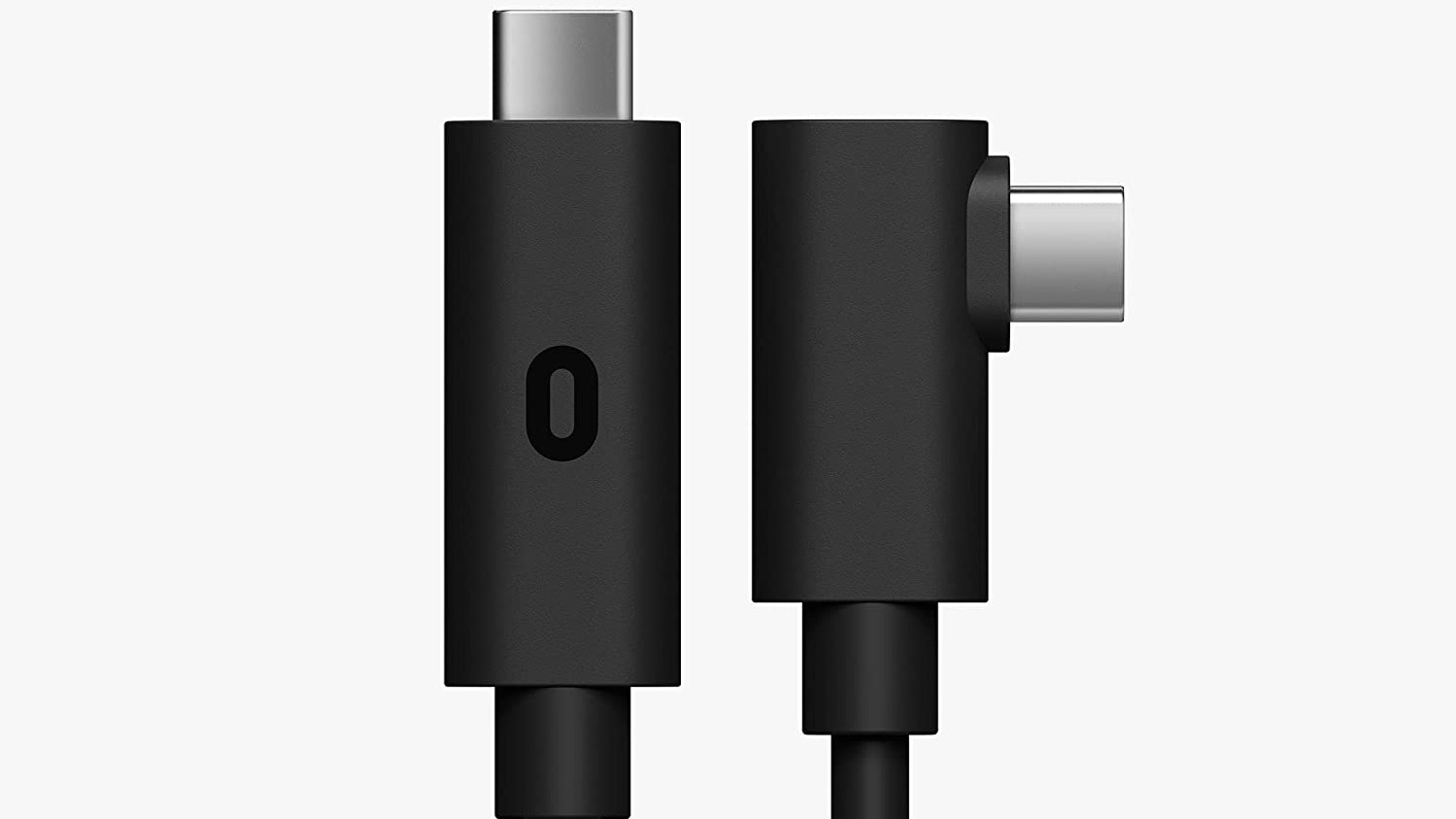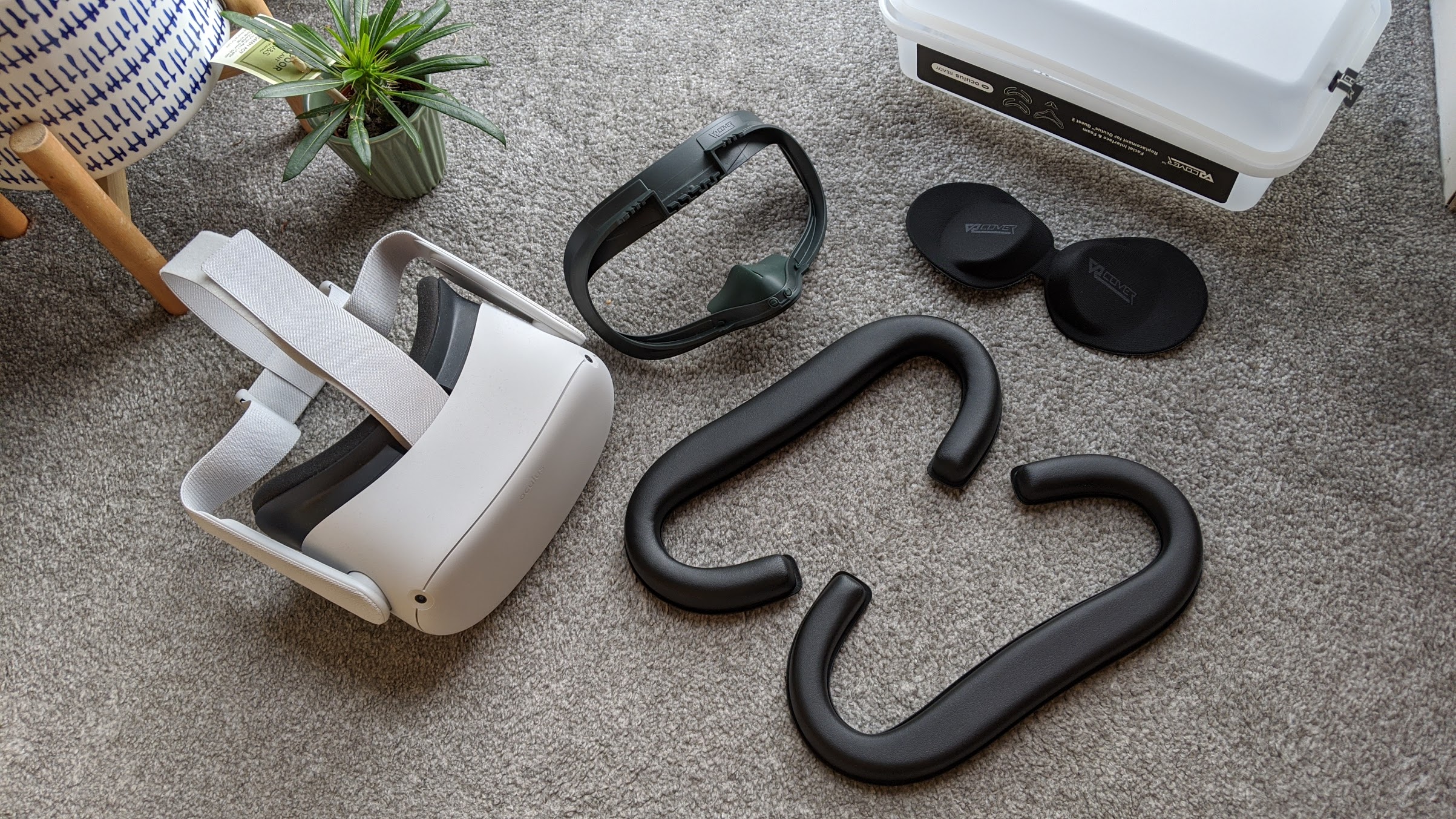Your Oculus Quest 2 could soon be even better for wireless PC VR gaming
Here's everything we know about Air Bridge

Sign up for breaking news, reviews, opinion, top tech deals, and more.
You are now subscribed
Your newsletter sign-up was successful
Meta could soon make the Oculus Quest 2 (now Meta Quest 2) an even better headset for PC VR thanks to a secretive device known as ‘Air Bridge.’
References to the unannounced ‘D-Link DWA-F18 VR Air Bridge’ were found by software engineer ItsKaitlyn03 in the latest Quest PC drivers for the Public Test Channel (later verified by UploadVR). Based on its name, many believe this could be a wireless dongle designed to improve the performance of the Quest 2’s Air Link feature – which lets you play PC VR games without a cable.
- A USB dongle that could link your PC and Quest 2 headset
- Likely to improve wireless PC VR gaming on Quest 2
- Will probably cost around $45 / £40 / AU$60
- Could launch alongside Project Cambria headset this year
The Air Bridge sounds like a device designed to connect two devices over a wireless connection, and its name hints at links to the Quest 2’s Air Link abilities. Its DWA-F18 name is also identical to the form used by USB Wi-Fi dongles like the DWA-X1850.
Meta has yet to announce anything officially, but with the Meta Quest Gaming showcase coming on April 20 there’s a chance the company could unveil some new gaming hardware alongside the software headed to its Quest 2 VR platform.
Until an announcement comes, though, here’s everything we currently know about Meta’s Air Bridge, as well as why it could be a must-have device for Quest 2 players.
Early thoughts: Air Bridge could be a must-have device
This dongle could be exactly what’s needed to turn Air Link from ‘Experimental’ to a fully-fledged feature.
Currently, Air Link works over Wi-Fi, but this has a few issues. Rather than interfacing with your computer directly, the signal has to pass through your router first and will be impacted by your network’s load, along with walls and objects placed between your router, PC, and Quest 2 headset that could block the signal.
Sign up for breaking news, reviews, opinion, top tech deals, and more.
As such, VR games played over Air Link are rarely as smooth as native Quest 2 games – resulting in Meta tagging the ability as ‘Experimental’, its codename for features that aren’t yet bug-free.
Players after a better connection could opt for the Link Cable, but the wire instantly removes the Quest 2's best feature – that it's completely untethered giving you complete freedom of movement.

A dongle, on the other hand, would remove some of these issues, as your Quest 2 headset and PC could interface directly on their own separate network. You’d still want to have your PC near your VR play space, but you won’t need to move your router around for the best experience – and you’ll no longer need to beg people to come off the Wi-Fi when you want to play wireless PC VR.
However, we’ll have to wait for Meta to make an official announcement before we get too excited. Firmware mentions are by no means a confirmation that a device is heading to consumers soon, if at all. Sure, it suggests Meta is testing some kind of dongle but it could decide the results don’t meet expectations and the plans are scrapped.
If it is coming our way, there’s a chance we could hear some mention of the Air Bridge at the Meta Quest Gaming Showcase on April 20.
Meta Air Bridge price
The Air Bridge hasn’t been officially announced yet, so there’s no confirmation of its price yet – of if it'll become publicly available at all.
That said, we can make predictions based on what we do know. For starters, we reckon a price somewhere in the $30 to $60 range is most likely (£25 to £50 / AU$40 to AU$80). This is on par with devices like the DWA-X1850 Wi-FI USB dongle and would stick to the Quest 2’s promise of keeping VR relatively affordable.
For those who have enjoyed Air Links capabilities over Wi-Fi, another $30 to $60 wouldn’t be too much of an ask to upgrade your Quest 2’s performance – and we expect it would also work with the Quest 3 and Project Cambria when they are launched.

Meta Air Bridge release date
Much like price, we’re also in the dark about the device’s release date, but we can once again make some educated guesses.
An announcement at the April 20 Quest Gaming showcase would make a lot of sense, but with the device only just getting a reference in public test code, it could still be a little too soon.
As such, a release later in the year seems more likely. At last year’s Meta keynote, the company not only announced a name change but also revealed that two new VR headsets were coming soon.
If a similar event happens this year, we could see Meta not only firm up details on its Project Cambria headset, but also unveil peripherals like the Air Bridge that will help it deliver an even better VR experience than anything before.
Meta Air Bridge design & features
Based on its naming style, the DWA-F18 VR Air Bridge will very likely look like a standard USB Wi-Fi dongle that's designed to plug directly into one of your PC ports.
Once plugged in, it would most likely serve as a way to directly link your PC and Quest 2 headset to enhance the Air Link feature for wireless PC VR play.

While Meta could use some other form of connection, some kind of direct Wi-Fi 6-based connection seems most likely, based on how the feature works currently. Wi-Fi 6 is currently the best mainstream form of a Wi-Fi connection – being able to maintain a stronger signal than previous iterations.
Wi-Fi 7 is currently in the works, but it’s almost certainly way too soon for that level of connection to be available in the Air Bridge – especially if the device is set to launch this year.
Beyond its Air Link improvements, we could see Air Bridge offer some kind of support for Quest 2 video content creators to be able to create higher quality streams of their VR experience – though we’ll have to wait and see what Meta announces.
Given that we expect the device won’t be very pricey, it might just be one of those things that only does one job, but does it well.

Hamish is a Senior Staff Writer for TechRadar and you’ll see his name appearing on articles across nearly every topic on the site from smart home deals to speaker reviews to graphics card news and everything in between. He uses his broad range of knowledge to help explain the latest gadgets and if they’re a must-buy or a fad fueled by hype. Though his specialty is writing about everything going on in the world of virtual reality and augmented reality.